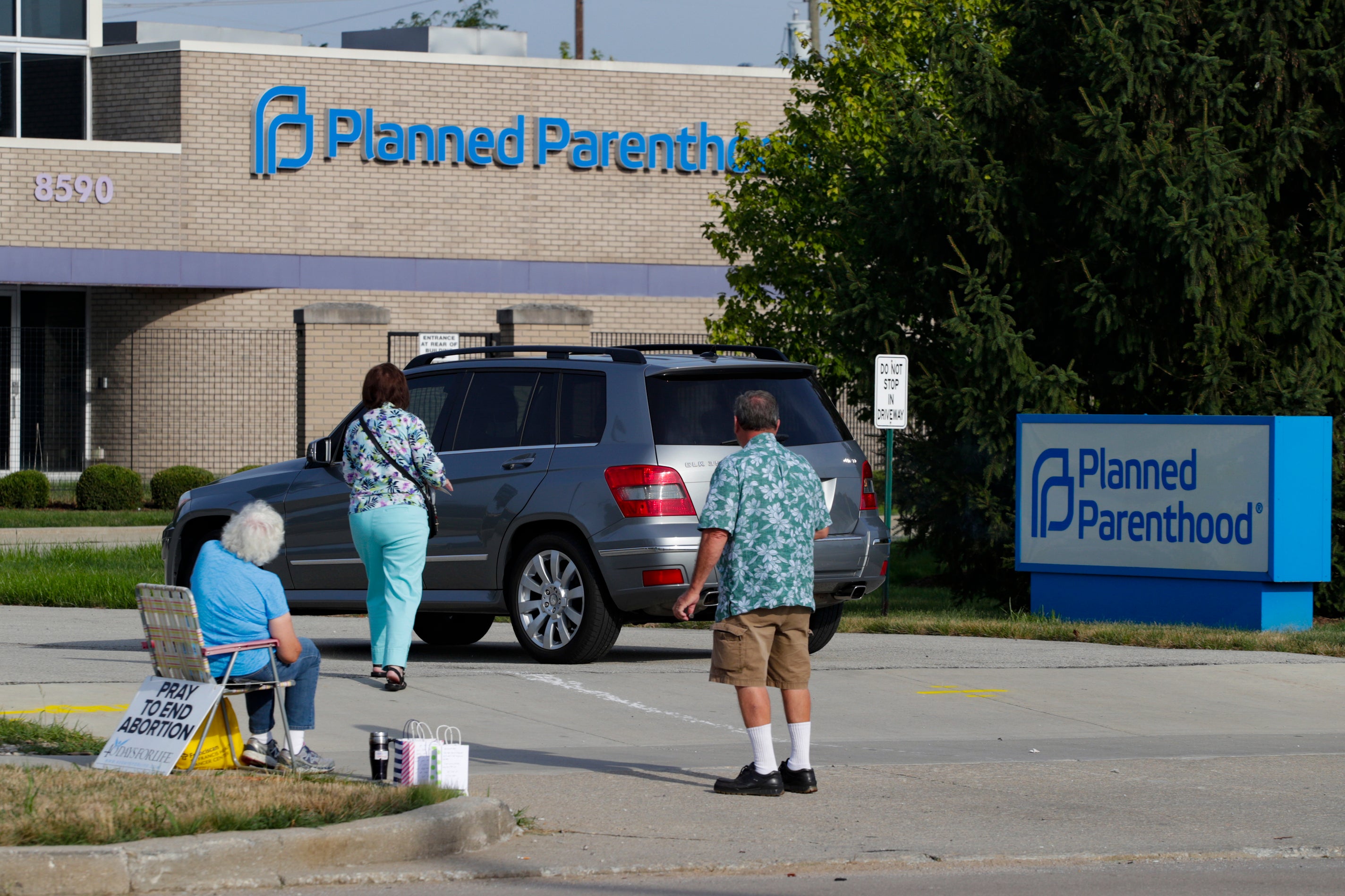Federal judge blocks Indiana ‘abortion reversal’ law
A federal judge has blocked a new Indiana law that would require doctors to tell women undergoing drug-induced abortions about a disputed treatment for potentially stopping the abortion process

Your support helps us to tell the story
From reproductive rights to climate change to Big Tech, The Independent is on the ground when the story is developing. Whether it's investigating the financials of Elon Musk's pro-Trump PAC or producing our latest documentary, 'The A Word', which shines a light on the American women fighting for reproductive rights, we know how important it is to parse out the facts from the messaging.
At such a critical moment in US history, we need reporters on the ground. Your donation allows us to keep sending journalists to speak to both sides of the story.
The Independent is trusted by Americans across the entire political spectrum. And unlike many other quality news outlets, we choose not to lock Americans out of our reporting and analysis with paywalls. We believe quality journalism should be available to everyone, paid for by those who can afford it.
Your support makes all the difference.A federal judge on Wednesday blocked a new Indiana law that would require doctors to tell women undergoing drug-induced abortions about a disputed treatment for potentially stopping the abortion process.
The ruling came just before the so-called abortion reversal law adopted by Indiana’s Republican-dominated Legislature was to take effect Thursday. The temporary injunction issued by U.S. District Judge James Patrick Hanlon in Indianapolis puts the law on hold while the lawsuit challenging it makes its way through court.
The lawsuit filed by abortion-rights groups argues that the law’s requirement would confuse patients and increase the stigma associated with obtaining an abortion, while also forcing doctors to give what they regard as dubious medical information to patients.
Republican legislators argued the requirement would ensure that a woman had information about halting a medication-induced abortion if she changes her mind after taking the first of the two drugs used in the procedure and takes another drug instead. GOP Gov. Eric Holcomb signed it into law in April.
Six states already have similar requirements in place, while such laws in North Dakota, Oklahoma and Tennessee have been blocked by legal challenges, according to the Guttmacher Institute, a research group that supports abortion rights.
The Indiana lawsuit maintains the requirement wrongly singles out doctors providing abortion drugs and their patients. The plaintiffs include Planned Parenthood which operates abortion clinics in Indianapolis, Merrillville, Bloomington and Lafayette, and groups that operate other clinics in Indianapolis and South Bend.
Medical groups maintain the abortion pill “reversal” process is not supported by science and that there is little information about its safety.
“No other healthcare providers are required to inform their patients about experimental medical interventions, the safety and efficacy of which are wholly unsupported by reliable scientific evidence, and no other patients are required to receive such information as a condition of treatment,” the lawsuit said.
Hanlon, who became a federal judge in 2018 after being nominated by then-President Donald Trump, issued the ruling after holding a June 21 hearing.
Dr. George Delgado, a San Diego-area physician who is a founder of the Abortion Pill Reversal group, testified before Hanlon that the treatment is safe and cited “50 to 75 successful reversals” he’s overseen directly.
The Indiana attorney general’s office argued that the Legislature was acting to protect “fetal life and women’s health.”
“Patients have the right to choose not to take the second pill and pursue alternative options to save their pregnancies,” the office said in a court filing. “Denying patients information regarding alternatives should they wish to continue their pregnancies harms women by depriving them of that choice.”
Medication abortions accounted for 44% of the roughly 7,600 abortions performed in Indiana in 2019, according to the state health department’s most recent statistics.
The Indiana law is part of a wave of legislation pushed in several Republican-led states to further restrict medication abortion and ban telemedicine abortions.
Indiana’s Legislature has adopted numerous abortion restrictions over the past decade, with several of them later blocked by challenges in federal court.
Among those challenges, a federal judge in 2019 ruled against the state’s ban on a common second-trimester abortion procedure that the legislation called “dismemberment abortion.”
The U.S. Supreme Court in 2019 also rejected Indiana’s appeal of a lower court ruling that blocked the state’s ban on abortion based on gender, race or disability. However, it upheld a portion of the 2016 law signed by then-Gov. Mike Pence requiring the burial or cremation of fetal remains after an abortion.